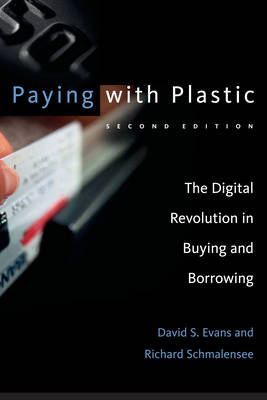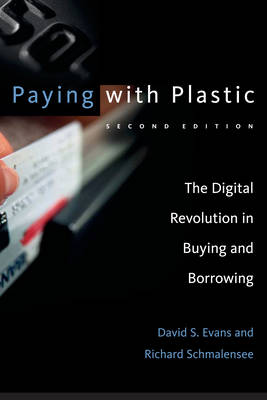
- Retrait gratuit dans votre magasin Club
- 7.000.000 titres dans notre catalogue
- Payer en toute sécurité
- Toujours un magasin près de chez vous
- Retrait gratuit dans votre magasin Club
- 7.000.0000 titres dans notre catalogue
- Payer en toute sécurité
- Toujours un magasin près de chez vous
Paying with Plastic, Second Edition
The Digital Revolution in Buying and Borrowing
David S Evans, Richard SchmalenseeDescription
The payment card business has evolved from its inception in the 1950s as a way to handle payment for expense-account lunches (the Diners Club card) into today's complex, sprawling industry that drives trillions of dollars in transaction volume each year. Paying with Plastic is the definitive source on an industry that has revolutionized the way we borrow and spend. More than a history book, Paying with Plastic delivers an entertaining discussion of the impact of an industry that epitomizes the notion of two-sided markets: those in which two or more customer groups receive value only if all sides are actively engaged. New to this second edition, the two-sided market discussion provides useful insight into the implications of these market dynamics for cardholder rewards, merchant interchange fees, and card acceptance. The authors, both of whom have researched the industry for more than 25 years, also examine the implications of the recent antitrust cases on the industry as well as other business and technological changes--including the massive consolidation brought about by bank mergers, the rise of the debit card, and the emergence of e-commerce--that could alter the payment card industry dramatically in the years to come.
Spécifications
Parties prenantes
- Auteur(s) :
- Editeur:
Contenu
- Nombre de pages :
- 384
- Langue:
- Anglais
- Collection :
Caractéristiques
- EAN:
- 9780262550581
- Date de parution :
- 17-12-04
- Format:
- Livre broché
- Format numérique:
- Trade paperback (VS)
- Dimensions :
- 152 mm x 230 mm
- Poids :
- 508 g

Les avis
Nous publions uniquement les avis qui respectent les conditions requises. Consultez nos conditions pour les avis.






